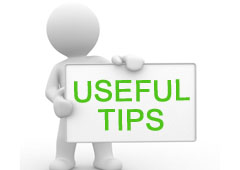Nearly all of today’s home purchase contracts include a home inspection contingency clause, which is a provision allowing the buyer to hire a professional home inspector to thoroughly evaluate of the house and determine if there are any issues with its structure or systems. Once a purchase contract has been signed, the buyer can book a professional inspector of their choosing, whom they may or may not accompany during the two- to three-hour inspection. A typical home inspection includes a check of a house’s structural and mechanical condition but can also encompass tests for radon gas, detection of wood-destroying insects and other services requested by the buyer. Back in 1976, the American Society of Home Inspectors (ASHI) standardized the home inspection process and established Standards of Practice dictating what must be inspected as well as how far the professional home inspector needs to go to report their findings. According to ASHI, the ten critical areas for inspection during the process are the structure, exterior, roofing system, plumbing system, electrical system, heating system, air conditioning system, interior, insulation and ventilation, and fireplaces. Once the home inspection is complete, the inspector creates a report for the home buyer detailing all that was found. This report will note problems requiring immediate attention and conditions that could lead to more serious issues over time.
How much you will profit and how long your home will sit on the market. Your real estate agent’s knowledge of the overall market and what’s selling – or not selling – will be invaluable in helping you determine the price. The objective is to find a price that the market will bear but won’t leave money on the table.
Here are some points to consider: Time. Time is not on your side when it comes to real estate. Although many factors influence the outcome, perhaps time is the biggest determinant in whether or not you see a profit and how much you profit. Studies show that the longer a house stays on the market, the less likely it is to sell for the original asking price. Therefore, if your goal is to make money, think about a price that will encourage buyer activity (read: fair market value).
Value vs. Cost. Pricing your home to sell in a timely fashion requires some objectivity. It’s important that you not confuse value with cost – in other words, how much you value your home versus what buyers are willing to pay for it. Don’t place too much emphasis on home improvements when calculating your price, because buyers may not share your taste. For instance, not everyone wants hardwood floors or granite countertops.
Keep it simple. Because time is of the essence, make it easy for the buyers. Remain flexible on when your agent can schedule showings. Also, avoid putting contingencies on the sale. Though a desirable move-in date makes for a smoother transition between homes, it could cause you to lose the sale altogether.
When your house goes on the market, you’re not only opening the door to prospective buyers, but also sometimes to unknown vendors and naive or unqualified buyers. As with any business transaction, there is an expected protocol to how sellers, buyers and their respective agents interact. Should you find yourself in a sticky situation, alert your agent so he or she can address and remedy the problem.
When your agent puts your house on the market, typically all promotional materials state clearly that your agent is the primary contact for buyers and buyers’ agents. However, sometimes a buyer’s agent will contact a seller directly to try to either win over their business or cut the seller’s agent out of the deal. This is not reputable behavior and you should report it to your agent immediately if it happens to you.
Have you ever started a business or moved into a new house and suddenly found your mailbox full of junk mail? Unfortunately, this also can happen when you put your house on the market. When you sell your home, it necessitates all kinds of new purchasing decisions and less-than-ethical vendors are keenly aware of this. Though MLS organizations enforce rules on how posted information is used, some companies have found ways to cull information from various sources to produce mass mailing lists. If you find yourself regularly emptying your mailbox of junk, let your agent know. He or she can tap the appropriate sources to prompt an investigation into the matter.
Yard signs, Internet listings and other advertisements can generate a lot of buzz for your home. Some prospective buyers – particularly first-timers – will be so buzzed to see your home that they’ll simply drop by. If this happens, no matter how nice these unexpected visitors are, it’s best not to humor their enthusiasm by discussing your home or giving an impromptu tour. Instead, politely let them know that your real estate agent is in charge of scheduling tours and provide them with the agent’s contact information. If you attempt to handle these surprise visits on your own, you might inadvertently disclose information that could hurt you during negotiations down the road.



